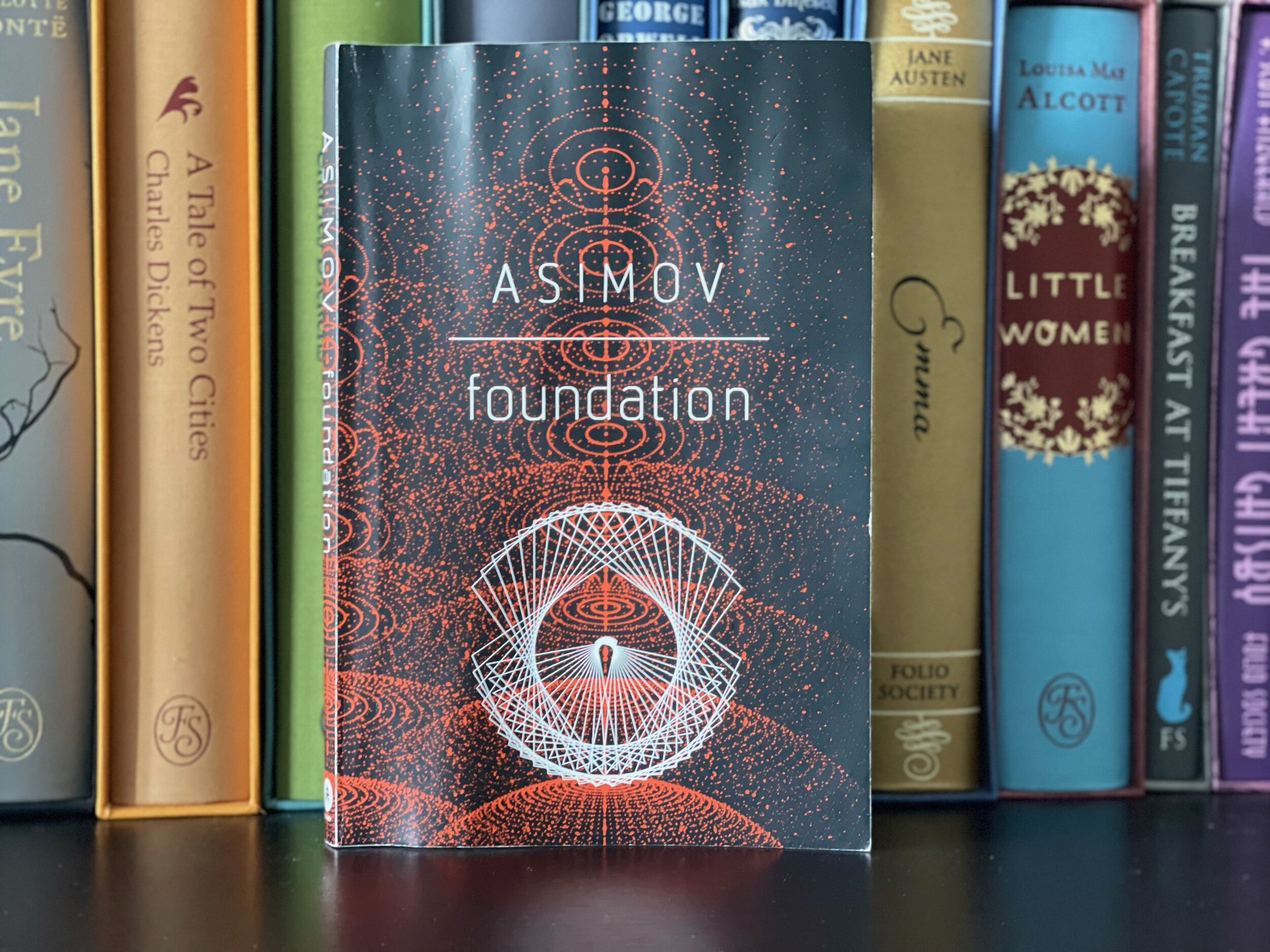Foundation by Isaac Asimov
Book Review: Foundation
The first in the original Foundation trilogy by Isaac Asimov, this story is an innovative science fiction novel. It is based on the concept of psychohistory, a combination of history, psychology, and mathematical statistics, to create a historical analysis, or interpretation, of the behavior of large populations of people.
In the novel, the story revolves around a fictional psychohistorian named Hari Seldon. Seldon was able to predict the fall of the Galactic Empire and developed “Seldon’s Plan,” to shorten the length of the predicted thirty thousand years of chaos and war following the collapse of the empire. His plan would shorten the amount of time from thirty thousand years to one thousand years.
Throughout the book, each generation encounters a “Seldon Crisis,” or a major turning point in the future of the Foundation. If the leaders make a wrong decision during this time, they risk the collapse of the Foundation, or corruption from other planets, and the risk of not being able to carry out the mission of creating a new Galactic Empire.
The first novel is written as a series of stories. Over the course of hundreds of years, multiple “Seldon Crises” are encountered. The reader is able to discover how each generation can overcome its “Seldon Crisis,” and what it reveals for the future of the Foundation.
In the story, there are many themes present. These include humanity, religion, fate and free will, power, warfare, society and class, philosophy of science, and time.
Overall, I found Foundation to be captivating and exciting — I would recommend it. To be honest, I had never heard of the series until I saw the trailer for the new Apple TV+ show coming this fall! I am glad I read it and I hope to read the other books in the original trilogy down the road (there are several others as well).
